Using baking soda for powdery mildew
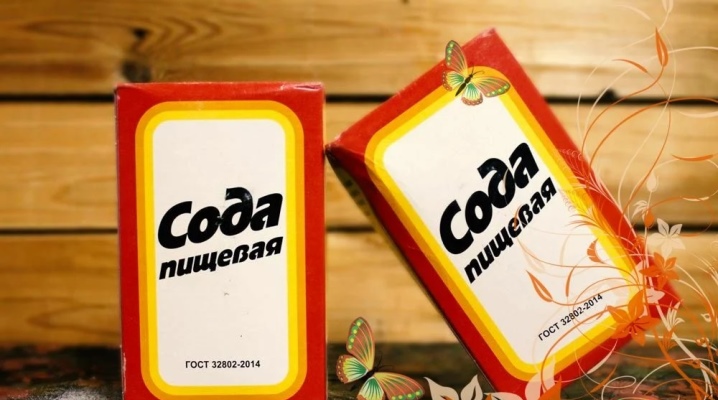
Powdery mildew is a fungal disease that affects many plant species.... This ailment can be recognized by the appearance of a white bloom on the culture. A sick representative of the flora will need urgent help, otherwise the disease may worsen, causing the death of the plant.
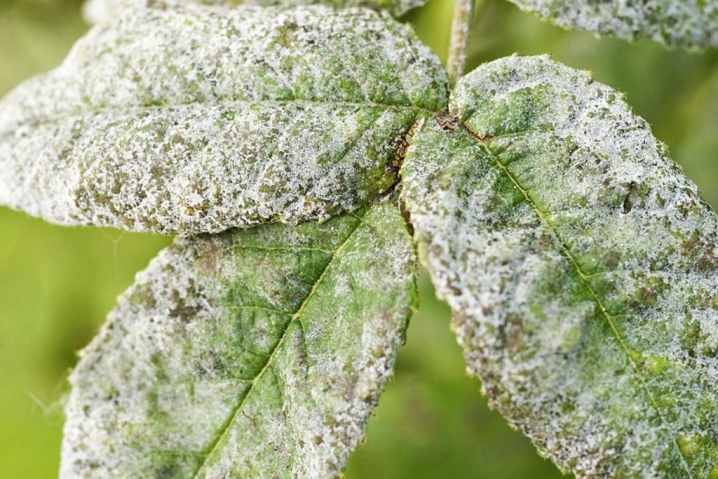
Peculiarities
Often, gardeners notice that a gray-white bloom has appeared on flowers, plums and other plants. It is he who indicates that there is powdery mildew on the site. This dangerous ailment can be defeated with chemicals and folk remedies. In the fight against the disease, soda will help, which belongs to safe and generally available substances.
Soda is used to treat many plant diseases, including powdery mildew. This unique agent can effectively disinfect the surface.
Such a product does not cause any harm to the representatives of the flora, therefore it belongs to the category of safe.
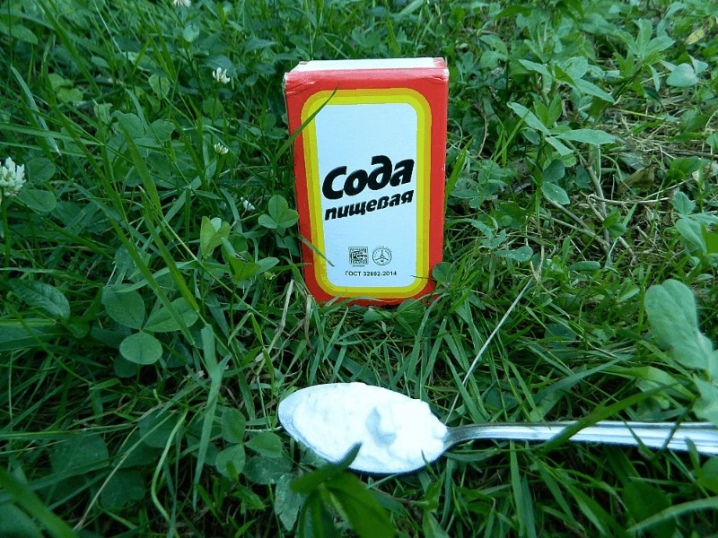
Soda is needed to destroy the fungus, clean the plant, as well as preserve its health... After exposure to soda on the fungus, the latter does not survive. The fact that powdery mildew has been defeated is evidenced by the disappearance of white bloom.
Here are the main characteristics of baking soda:
- ease of use;
- high efficiency;
- disinfecting effect;
- absolute safety for plants.
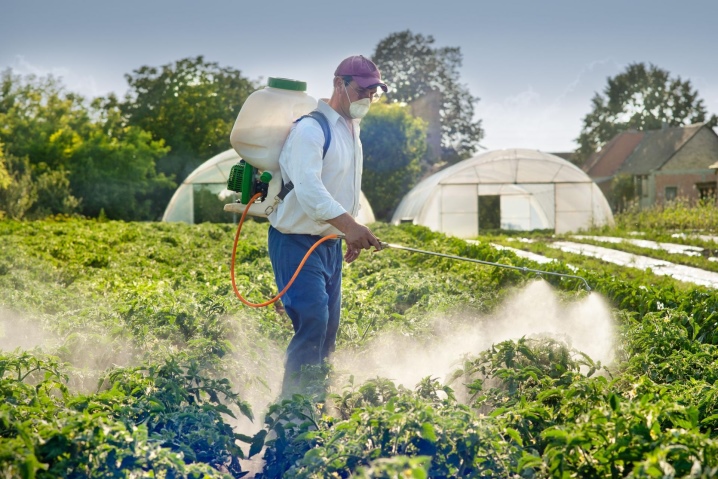
How to prepare the solution?
Both soda ash and baking soda can be used against powdery mildew. As practice shows, both products give good results. Soda ash can be dangerous for flora, so it is used less often. At a high concentration of the product in the solution, not only flowers, but also vegetables can die.
Baking soda should be diluted in the amount of 1-2 tablespoons per 1000 ml of water. Soda ash can be diluted in the amount of 0.5 teaspoon per 1 liter of water.
High efficiency in the fight against fungal disease is observed after irrigating plants with a solution of soda and soap.
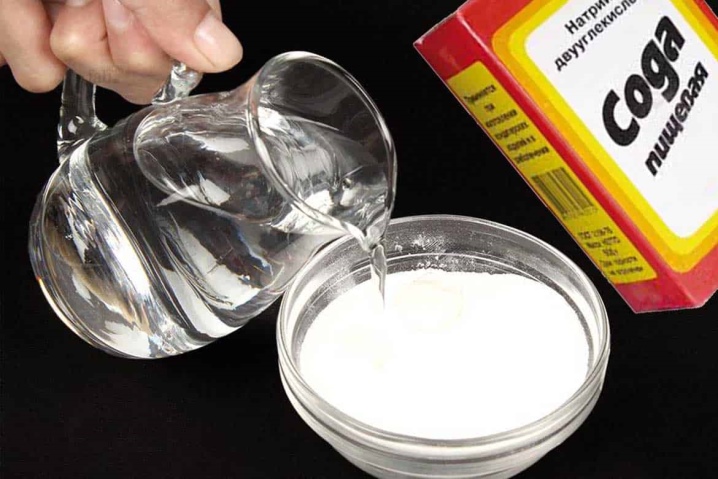
The recipe for preparing a soap-soda solution is as follows:
- 4500 ml of water is mixed with a tablespoon of soda;
- a teaspoon of liquid soap is introduced into the prepared product;
- mix all the ingredients thoroughly.
After preparation, the solution can be used as directed several times per season. A component such as liquid soap helps to accelerate the destruction of powdery mildew. After processing, the culture is disinfected, and the fungus disappears much faster than without the addition of soap. Soda solution with soap prevents subsequent infestation of garden and garden crops, and also repels pests.
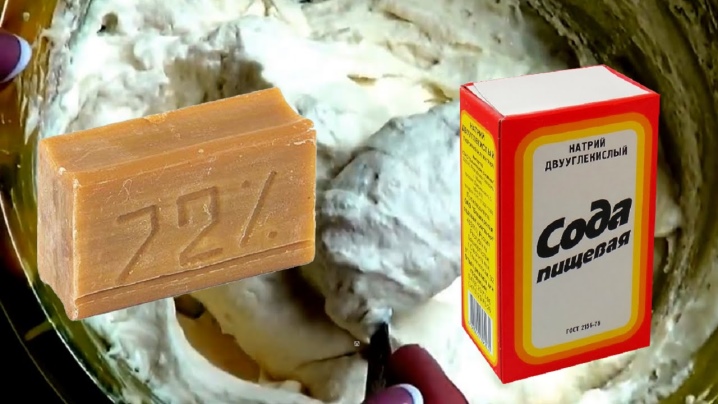
To get rid of powdery mildew, other viral and fungal ailments on cucumbers, currants and other crops, you should use a recipe for a soda solution with iodine, soap and HB-101.
For 10 liters of water, you will need to observe the following proportions of ingredients:
- 2 tablespoons of baking soda
- 5 ml "Betadine";
- 2 tablespoons of liquid soap;
- 10 drops of "HB-101".
As an alternative to Betadine, ordinary pharmaceutical iodine can be used. This "cocktail" is sprayed on foliage, stems, fruits of affected plants. Experts strongly advise against processing crops during flowering.
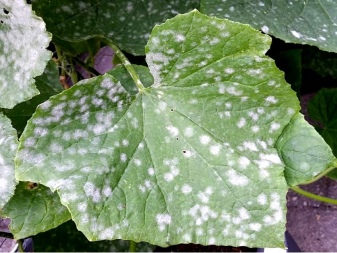
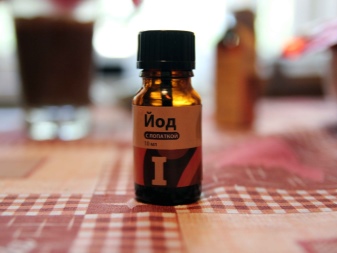
How to apply?
Before you start processing the culture from powdery mildew with soda, it is recommended to perform the following steps.
- Tear off all affected foliage and flower stalks from the crop. If the bush is sick, then it will need total crown pruning, as well as cleaning some parts of the plant. In this case, it is advisable to destroy as many branches and leaves as possible so that the disease does not spread to healthy vegetation.
- Replace the topsoil on the plot or in a container, since it may contain colonies of a fungal infection.
- Spray crops... Do not forget about watering the soil with medicines.
The treatment of vegetation with a soda solution should be done at the correct frequency, namely, several times per season. The ingredients must be well mixed. Experts recommend treating crops using a garden sprayer.
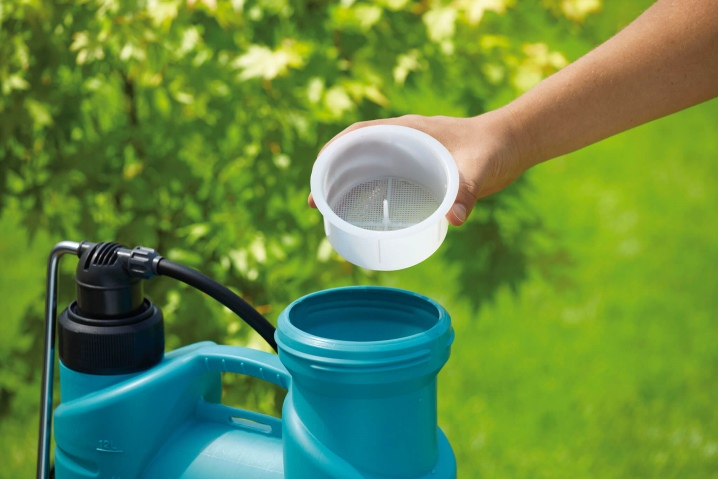
If there is no sprayer, then you can process the bushes with an ordinary broom. The latter needs to be wetted in a solution and evenly irrigate the crop, including the stem, foliage, soil near the plant.
The optimal time for treatment is evening or early morning. So the medicine on the foliage will last longer. In addition, it is better to choose a day when the weather is dry outside, otherwise excess moisture can harm an already weak representative of the flora.
The result of the procedure can be seen in a couple of days. If foci of infection remain on the green parts of the plant, then spraying with soda will need to be repeated.
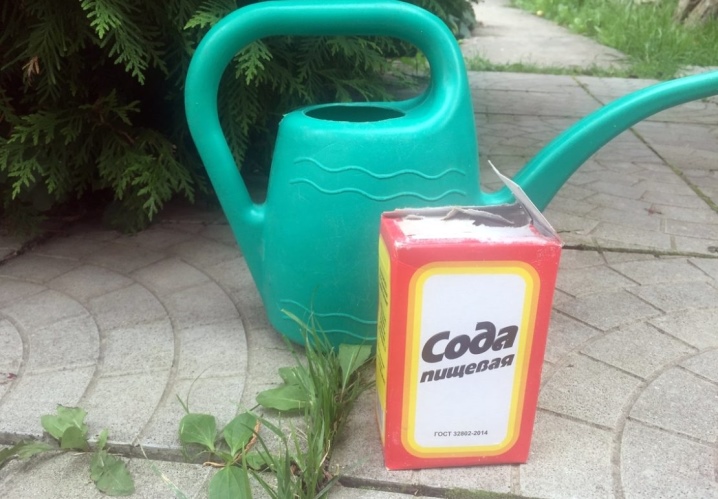
See below for powdery mildew control.













The comment was sent successfully.